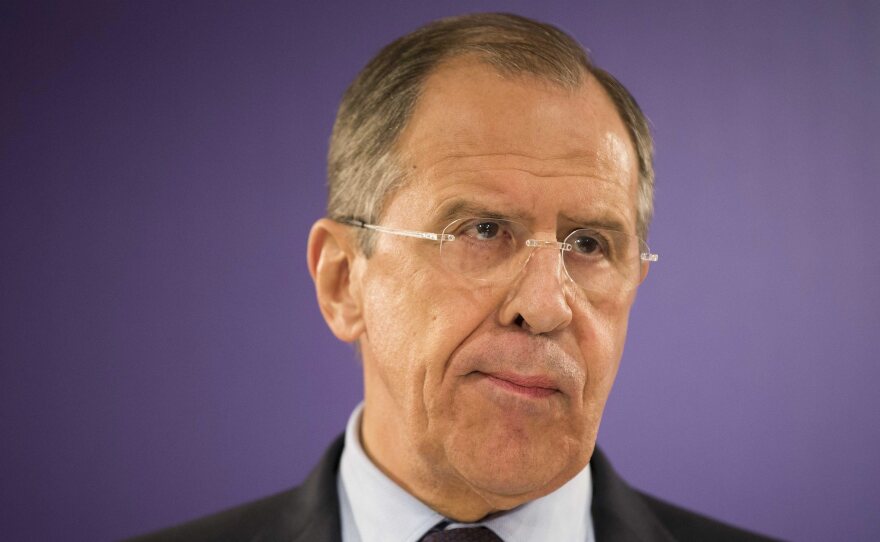President Obama has met with the leader of Russia's close ally, Kazakhstan, in a meeting that both sides said had nothing to do with the situation in Ukraine, but the one-on-one follows earlier contact between the two that was aimed at defusing the Crimea crisis.
The Associated Press says the meeting with Kazakh President Nursultan Nazarbayev was a last-minute addition to Obama's schedule at a nuclear summit in The Hague. The two leaders had previously spoken by telephone on March 10, when the White House said it had urged Nazarbayev to play an active role in seeking a peaceful resolution over Crimea.
That meeting follows a surprise face-to-face on Monday between Russia's Foreign Minister Sergei Lavrov and his Ukrainian counterpart. It was the highest-level meeting between the two countries since the Kremlin's annexation of Crimea earlier this month. Lavrov used the sit-down with Andriy Deshchytsia to reiterate Moscow's call for autonomy for Russian speakers in the border regions between the two countries.
"We set forth our vision to establish good national dialogue taking into account all residents of Ukraine," Lavrov said in a news conference in The Hague.
Lavrov also brushed off the concerns about Russia being expelled from the G8 group of leading industrialized nations as a punishment for its military actions in Crimea, calling the move "no great tragedy."
Other members of the G8 have agreed to scrap a July summit that was to be held in the Black Sea resort of Sochi, site of this year's Winter Olympics.
"If our Western partners think that this format has outlived itself, then so be it," Lavrov told reporters. "At the very least, we are not trying to cling on to this format."
Russian President Vladimir Putin has alluded to the post-Cold War orphaning of Russian-speaking populations in former Soviet republics, as justification for its actions in Crimea and its demand that Russian speakers in Ukraine be protected.
(For a look at Russian-speaking populations living on Russia's periphery, we have a closer look here.)
On Monday U.S. Air Force Gen. Philip Breedlove, a former NATO Supreme Allied Commander in Europe, said that after Crimea, Moscow might be eyeing Moldova's mainly Russian-speaking separatist Transdniestria region.
Breedlove's comments come amid concern that Russia, which has massed troops on its eastern border with Ukraine, might also make a move.
Adm. James Stavridis, also a former NATO Supreme Allied Commander in Europe, tells NPR that he thinks both of those concerns "will trigger an enhanced level of cooperation between NATO and Ukraine in particular."
"I share Gen. Breedlove's concern, however, about the massing of troops on the eastern border of Ukraine. That is, in my view provocative and destabilizing," Stavridis tells Morning Edition.
Copyright 2014 NPR. To see more, visit http://www.npr.org/






